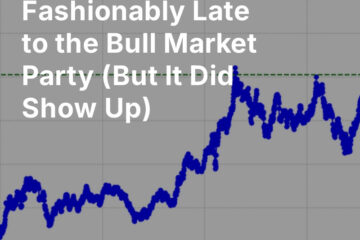Market Summary
The U.S.
As expected, the U.S. Federal Reserve cut the benchmark fed funds rate by 0.25% on Wednesday, as expected, and also ended the runoff of its portfolio of bonds a month early. Fed Chair Powell said, “The outlook for the U.S. economy remains favorable and this action is designed to support that outlook.” He noted “weak global growth, trade policy uncertainty, and muted inflation” as well as a recent decline in manufacturing output and businesses’ fixed investment, reporting that anecdotes from business contacts suggested cautious capital spending.
Markets gyrated on the news but we expect such volatility to be transient; market participants were perhaps disappointed that Chair Powell did not suggest a cycle of rate cuts was in the offing, but that the present move had more the character of an adjustment within a tightening cycle. (Still, he did not rule out future cuts.)
In our view, the current slowdown does not differ greatly from other slowdowns during economic expansions, and we do not see signs of an imminent recession. The U.S. stock market is somewhat overbought, and the proportion of S&P 500 companies trading above their 20- and 50-day moving averages has stagnated, which suggests that the market is already correcting internally. A mild correction after the year’s strong performance thus far would not be unexpected, but in our view is not a cause for concern, and would represent an opportunity. The U.S. market leadership continues to be focused in technology, as we have written for several months. All of our areas of interest within technology remain the same: artificial intelligence, data analytics, the cloud, cybersecurity, networking, defense electronics, and financial technology.
Cybersecurity came to the fore once again with the revelation of a major data breach compromising Capital One customers and credit card applicants, executed by a former employee of Amazon Web Services. This exploit has resulted in a new level of concern about security for the public cloud. We simply note that cybersecurity will remain central and the need will grow exponentially for the foreseeable future. When the biggest U.S. corporates write blank checks to their cybersecurity departments, you know you’re looking at a durable theme.
The U.K., Europe, and Emerging Markets
British Conservatives, as expected, chose Boris Johnson to replace Theresa May as Prime Minister, and he wasted no time filling his cabinet with pro-Brexit allies and supporters. He also readied a communications blitz with the British public with a refreshingly optimistic tone, and gave a hardball message to European negotiators about the UK’s willingness to embrace a “no-deal” Brexit if changes were not made to the deal negotiated by his predecessor. So far, there is no sign that Europe is willing to revisit that agreement, so markets are nervously pricing in a disruptive Brexit on Halloween, with no deal in place; the pound has dropped to multi-year lows. We continue to believe that in the event of a real Brexit that does not shackle the UK but allows it to chart a genuinely independent global course, the UK economy and stock market will ultimately benefit. A tumultuous Brexit might prove to be a good buying opportunity.
We continue to find Europe and emerging markets uninteresting for reasons we have expressed for some time. Growth is lacking in Europe, and emerging markets are weighed down by poor sentiment surrounding global trade and negotiations between China and the U.S.
Gold and Cryptocurrencies
Gold ran up in anticipation of the Fed’s rate cut, and pulled back, with market participants perhaps disappointed by the cut and hoping for a bigger one, or for a signal that the Fed was anticipating a series of cuts. Still, our bullishness on gold and silver is not predicated on near-term Fed decisions, but on what seems to be a growing sense among investors and commentators that significant changes in the economic and investment landscape are growing closer, as we noted last week. We believe the time is right for investors to evaluate their gold holdings, and to begin to add to their allocation, particularly on weakness.
No major news came this week on the cryptocurrency front. Bitcoin has declined from the peak it reached when Facebook announced its Libra initiative, especially as regulatory skepticism of that initiative became clearer. Still, Bitcoin’s appreciation in 2019 has led to more interest; we can report anecdotally more inquiries from clients and prospective clients about buying crypto assets. Our advice remains the same: do your due diligence, buy only from reputable, regulated, U.S. based exchanges, and recognize that you are making a highly speculative and volatile investment.
Thanks for listening; we welcome your calls and questions.


